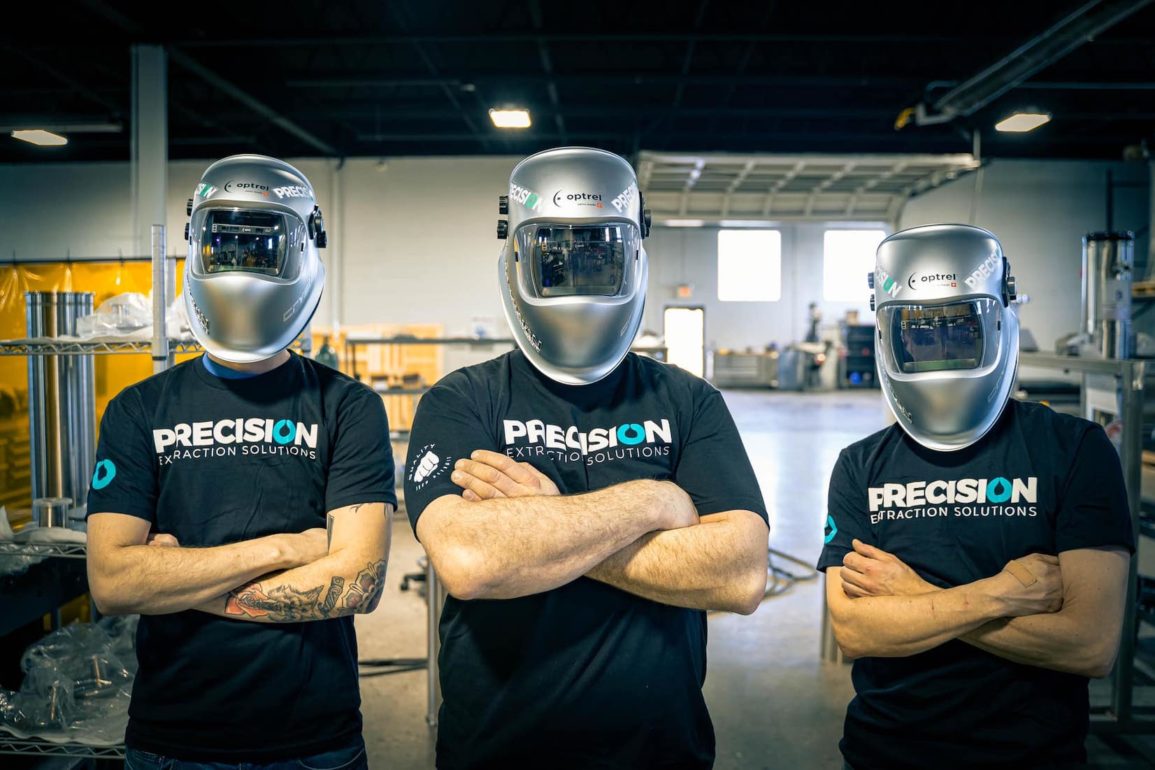Ever wonder how cannabis companies craft the creamy, viscous concentrates that they do? You can thank extraction companies for that. However, with more brands attempting to get with the trends and distribute products they know consumers are looking for, the market has become saturated with low-quality options that use unsafe, impure extraction methods.
But, that’s where Precision Extraction Solutions aims to make a difference.
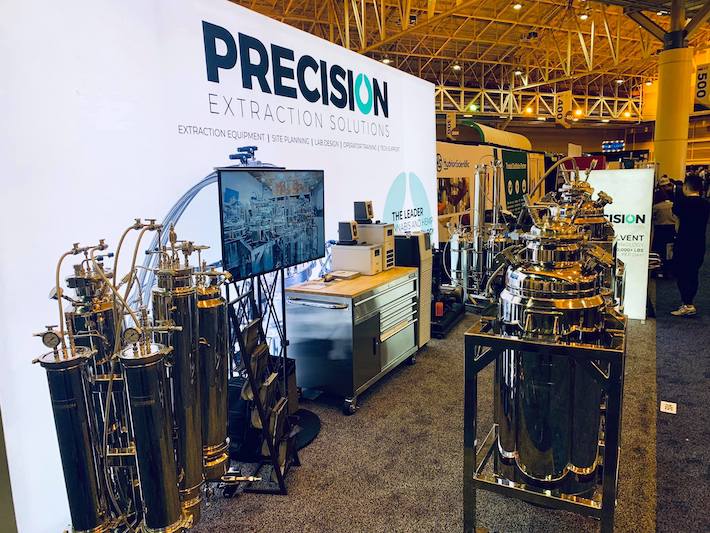
US-based, high-quality, and ultra-refined, Precision Extraction Solutions has been in the business of perfecting cannabis concentrates for years. They consider themselves system integration experts, as they avoid one-size-fits-all solutions and aim to find individualized approaches to meet every customer’s needs.
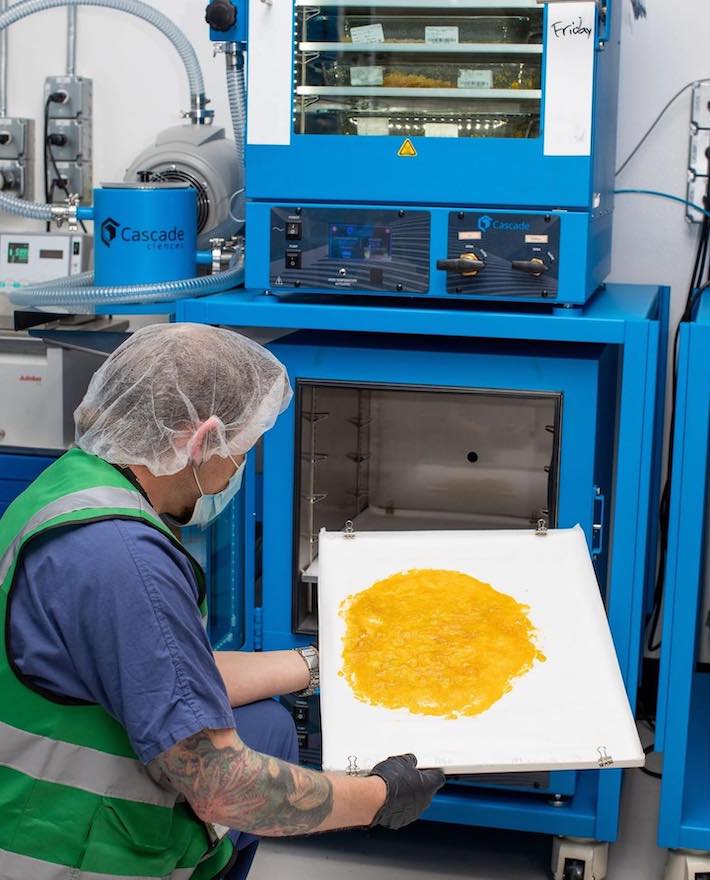
Precision Extraction Solutions is a company comprised of true cannabis connoisseurs who just want to provide the best of the best for consumers. They utilize some of the most advanced, relevant extraction equipment to create pure products that even the most seasoned smokers (like us) can appreciate. With the goal of evolving cannabis extraction science, the masters behind Precision Extraction Solution are industry leaders that we just so happen to have the pleasure of speaking to.
Today, we’re chatting with Ben Cusack, the Technical Project Manager here at Precision. Here, he grants us an exclusive look into the world of cannabis extraction processes.
Can you briefly detail the extraction processes of a few cannabinoids and terpenes, starting with delta-8 THC?
BC: The process for extracting Delta-8 is identical to extracting CBD – primary ethanol extraction, winterization, decarboxylation, and distillation. When converting CBD to Delta-8 in a laboratory, a processor is using CBD isolate, a reaction vessel, and mixture of various solvents to perform the chemical reaction, then recovering those solvents before ending up with a finished concentrate for use in end products.
Is delta-8 THC synthetic?
BC: Technically no – but it’s complicated. Delta-8 occurs in minimal amounts, so harvesting enough raw plant material to gather the desired amount of Delta-8 would take too much time, effort, and money. Processors can extract and effectively concentrate Delta-8 from the raw plant material, but CBD can also be converted into pure Delta-8, fortunately for hemp producers. It is the latter conversion of CBD to Delta-8 that people commonly refer to Delta-8 as a “synthetic.”
What’s the extraction process of CBG like?
BC: The process for extracting CBG is nearly identical to extracting CBD. Ethanol extraction is often the preferred method for extracting this cannabinoid at scale. A low-temp ethanol extraction with a centrifuge is performed to separate the cannabinoids, followed by the standard winterization processes of cooling crude oil with solvent and sub-zero temperatures in a reactor to separate the fats and waxes, and then filtering miscella with a filtration system to capture those separated fats and waxes from the extract.
Once the extract has been winterized, CBGa must be converted to CBG via decarboxylation. The use of a reaction vessel again is used to achieve this conversion but now with the use of heat to remove the CO2 and convert the acidic CBGa to CBG. Now having produced the neutral form of CBG, a short path or wiped film distillation unit can be used to perform the actual separation of CBG from the rest of the cannabinoids, terpenes, and high volatiles in the extract.
Depending on the desired end product, chromatography can be used for further isolation and purification of CBG – but it is not always necessary.
What about CBN?
BC: The process for extracting CBN is identical to that of CBG; the primary difference is the age/type of the biomass being used.
In the case of extracting CBN, the biomass is going to be older, more mature cannabis plants because that is the point in its growth cycle where CBN concentrations are the highest. In the event of CBG, the biomass is going to be young, less mature plant material before CBG has naturally converted to THC in the growth cycle.
It is possible in a laboratory to convert extracted THC to CBN, but this can be complicated as the conversion process is actually a degradation of the THC molecules and can be difficult to produce in a repeatable manner.
What’s the extraction process for terpenes like?
BC: The process for extracting terpenes can be handled via a multitude of methods. In the case of Hydrocarbon Extraction, a closed-loop extraction system is used to create a high terpene extract such as terp sauce. Once extracted, the terpene fraction can be collected and isolated by a method of mechanical separation and then refined through short path distillation resulting in cannabinoid-free terpenes that can be used in the formulation of other products.
Why has the demand for alt cannabinoids increased (B2B perspective)?
BC: What we have seen is processors and brands looking to differentiate their product offerings from each other in the marketplace, which is growing more and more crowded every day. A great way to do this is to invest in the SOPs and technology to isolate alternative cannabinoids and use those either on their own or as an additive to an already established formulation; for example, a CBD tincture with CBN.
Further propelling this exploration of alternative cannabinoids is the curiosity and appetite of the consumers to experiment with the different effects of cannabinoids.
How is THC percentage tested and what does it actually mean for the consumer? Are you getting more high for your buck?
BC: The best approach to cannabis potency testing is High-Performance Liquid Chromatography (HPLC). To put it simply, you dissolve a sample of your product in a solvent and then run the samples through your HPLC machine, which filters, separates, and measures the amount of each cannabinoid present, including THC.
While a higher THC percentage is often associated with the feeling of being “more high” it is not necessarily the best approach for a consumer to take. The synergistic effects of a complex terpene profile in combination with a lower THC percentage can provide a much more effective and enjoyable “high.”
So, how did Precision Extraction Solutions come about?
BC: In 2008, our founder Nick Tennant was the 40th person in our home state of Michigan to get a license to run a vertically integrated medical cannabis operation. He began to realize that the majority of consumable cannabis products were going to be made with concentrates, so he switched his focus and founded Precision Extraction Solutions in 2012.
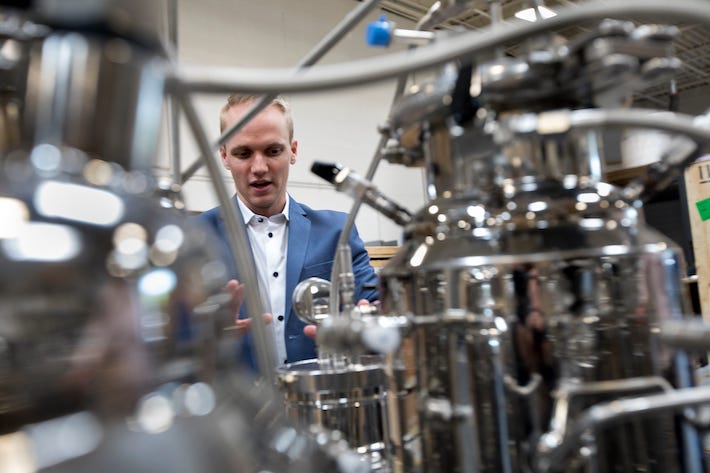
Tennant has always had a strong sense of curiosity and entrepreneurial spirit so he dove into the science and taught himself the nuances of building and using extraction equipment to extract and isolate the different molecules of the cannabis plant.
Precision is the largest global supplier of cannabis and hemp extraction equipment.
By 2019, Precision had surpassed $40 million in revenue and counts major names among our client base, from most of the major MSOs to smaller craft concentrate brands. We recently announced a merger with Cascade Sciences, which officially makes us the largest global supplier of cannabis and hemp extraction equipment.
It seems that ethanol is the more dominant (and affordable) medium of cannabis extraction — yet, many extractors do use supercritical Co2 which may be more expensive but also efficacious. Any thoughts on this?
BC: Ethanol processing is generally considered to be an easier and more cost-effective method of extraction at a large scale. This method can potentially have a larger upfront capital expense as there is more processing equipment involved to produce a final product, however, there is generally a lower operational expense associated with ethanol extraction.
Co2 is often regarded by many as a “safer” extraction method due to the lack of flammable solvent use in the process. It can also be an easier approach to getting licensing and facility approvals as there will not be rated environments required or the storage and use of “dangerous” solvents. While this is partially true, some methods of Co2 extraction operate at very high internal pressures which can also be very dangerous if handled improperly or strict maintenance protocols are not followed.
The post-extraction steps required to produce a usable final product with Co2 can be tedious and costly due to the required manual labor involved.
What sets your systems apart in the cannabis extraction market?
BC: To put it simply, we don’t just sell you a machine – we provide not just a system, but an ecosystem to make sure your operations are seamless and safe. Our entire product catalog is fully peer-reviewed and certified and field verified by PSI Labs (Pressure Safety Inspectors); with other providers, you would need to coordinate your field verification yourself.
We provide not just a system, but an ecosystem to make sure your operations are seamless and safe.
We also have a holistic customer support approach, with compliance, design, technical and engineering teams ready to assist with nearly any situation or challenge that may arise.
We are system integrators, working with our clients to configure a complete system from C1D1 rooms to primary extraction to post-processing, no matter the scale of your operation. It’s not about selling components or parts, it’s about how those pieces work together in the process most efficiently and are tailored to your products and your business plan.
Over the last few years, concentrates have grown in popularity — the demand is still growing, correct?
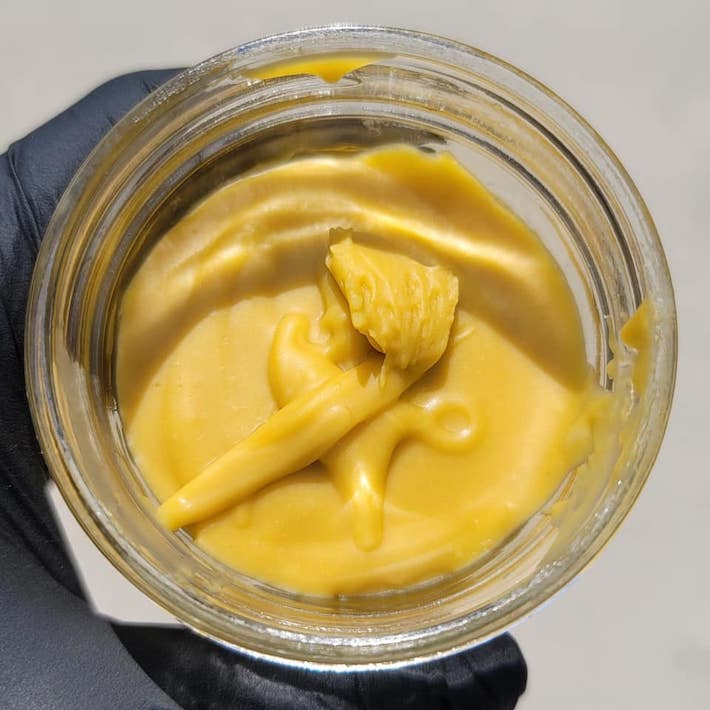
BC: Absolutely. I believe a recent statistic in recreationally legal states was that upwards of 44% of sales in dispensaries are an extract or concentrate product. Some local markets will have fluctuations in the level of popularity of concentrates, but we’re seeing that as the newly recreational markets mature and people spend more time in dispensaries educating on cannabis and the various forms of consumption that the popularity of concentrates can really take off.
Wrapping it Up
In a time where so many people are looking for a pure profit in the cannabis industry, companies like Precision Extraction Solutions are a breath of fresh air. This business is dedicated to providing customers with only the highest-quality products possible, and they stay improving every day. That’s truly what makes Precision Extraction Solutions better than all the rest: they understand that the cannabis industry is ever-changing. And that’s why Precision’s extraction techniques evolve as science does, too.
